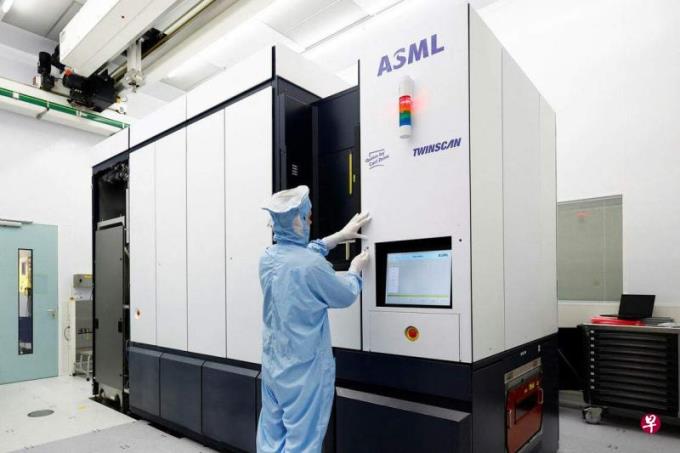
(Amsterdam / Washington Composite Electric) Sources said that the United States and the Netherlands will stricter the cooperation between Dutch semiconductor equipment manufacturing giants and Chinese customers, showing that the scientific and technological conflicts between China and the United States will continue to upgrade.
Bloomberg quoted sources revealed that the new export control regulations in the Netherlands will prohibit Asto (ASML) for maintenance, maintenance, and providing components of the control equipment without government approval.
In addition to the Netherlands, the United States is expected to ban Acemi from selling old deep ultraviolet light carvings (DUVs) to the six Chinese factories without Washington's approval.One of them is China's SMIC.
Sources also said that the United States may also ban Acemai from being installed by the six Chinese factories to be permitted by controlled machines and equipment to provide maintenance, maintenance and components.It is still unclear when the United States will implement these additional restrictions.
In response to relevant reports, Dutch government officials, the US Department of Commerce, and Asmi refused to comment.
Pattel, chief analyst of analyst Semianalysis, said that the Dutch regulations show that officials do not want China to be able to produce the most advanced semiconductor.If these machines cannot be obtained, Chinese chip companies will be at a significant disadvantage in the global advanced logic and memory chip market, "may be forced to postpone or cancel some future cutting -edge technology development."
The Dutch government issued a provision in June that from September 1st, Aesmi was banned from delivering DUV to China without permission.DUV is the second advanced device of Asmore for manufacturing computer chips.Earlier, the Netherlands had restricted Acemai's most advanced extremely ultraviolet light carved machine to China.
The United States and Japan Lands are the main sources of machinery and professional knowledge required for advanced semiconductors.The United States has reached an agreement with the Netherlands and Japan in January this year to expand restrictions on advanced semiconductor manufacturing machines in China.
Faced with the scientific and technological blockage launched by the United States, China has filed an appeal to the World Trade Organization.
News: Semiconductor manufacturers intend to persuade Mei not to expand restrictions on China
In addition, sources from Reuters and Bloomberg pointed out that senior executives of semiconductor manufacturers such as Intel and Qualcomm planned to go to Washington to discuss policies against China next week.
Sources said that these high -level plans to lobby Bayeng Government, do not expand the restrictions on selling certain chips and semiconductor manufacturing equipment to China, and also intend to persuade the White House. Once the conflict is upgraded, it will damage the United States to establish a more effective relationship with China.The diplomatic effort made.
According to Voice of the United States, Intel Blight announced the launch of a new artificial intelligence (AI) chip to the Chinese market on the week, showing that although the United States has continuously strengthened strict restrictions on the Chinese AI industry, American technology companies still try to bypass the governmentExport control and strive to participate in the Chinese market.
It is reported that there are many loopholes in the export control of AI technology, so that China's AI industry can still develop high -speed when lacking domestic cutting -edge chips.



